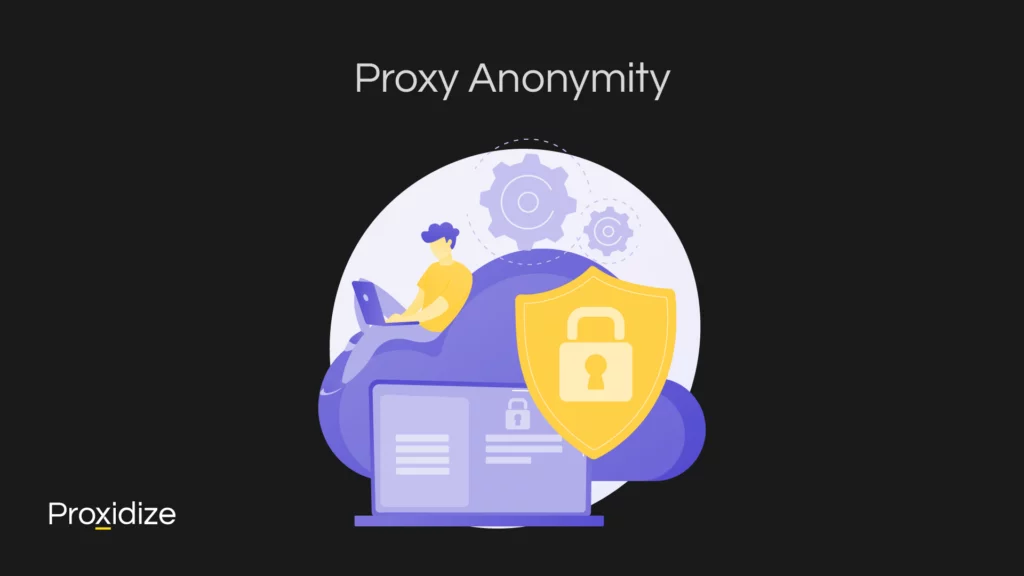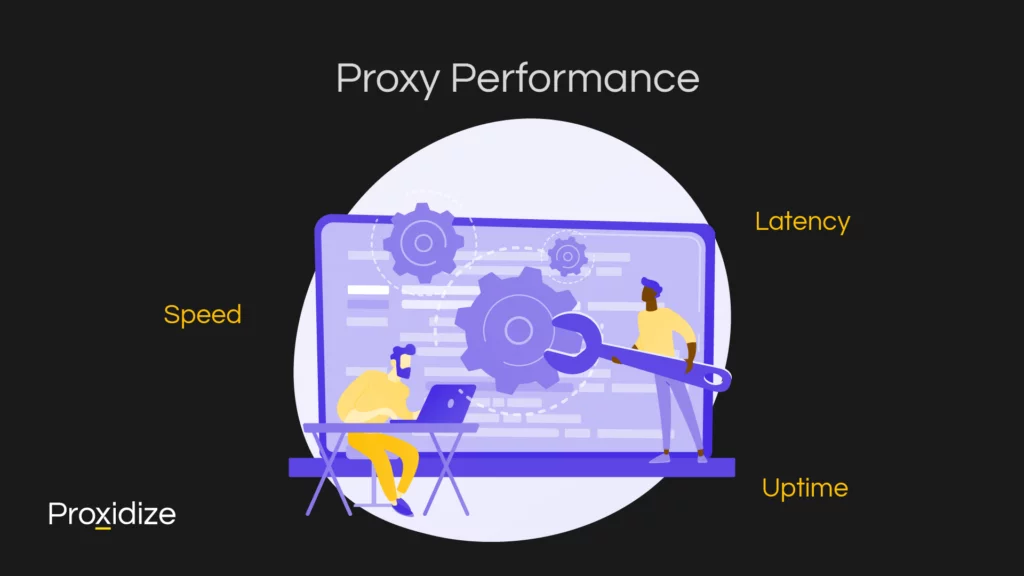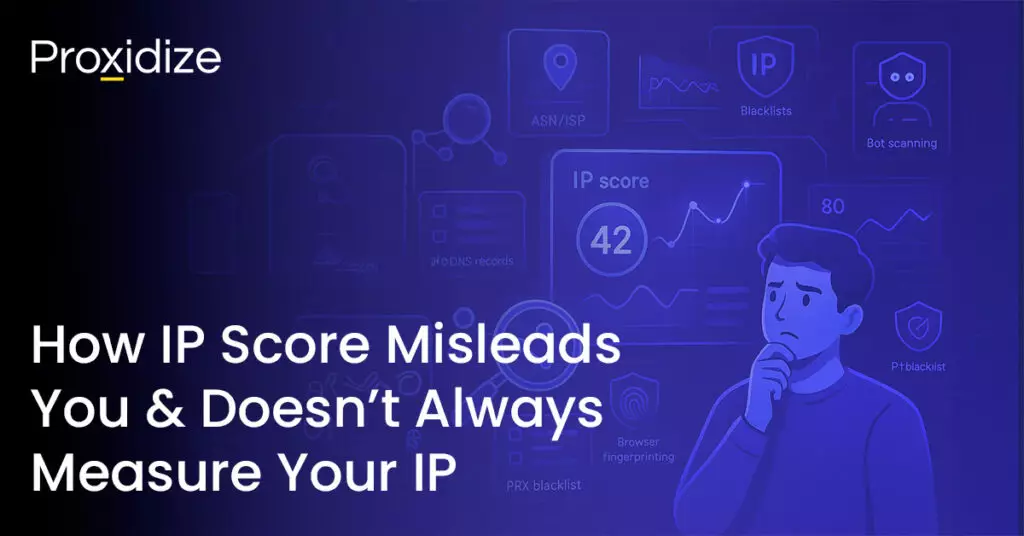Many of us rely on proxies every day of our professional lives and others of us are just discovering the industry today. This article will explain to those of you less familiar with the topic how to test proxies in three quick and easy ways.
When assessing a newly acquired proxy, you need to get answers to the following simple questions:
- Anonymity: Is my real IP address hidden?
- Reputation: Will using this proxy get me blocked due to its history?
- Performance: Does the proxy meet my speed and reliability needs?
Given that the majority of you using proxies do so to enhance your privacy, bypass restrictions, and want to interact with the internet at scale, all three of these questions need satisfactory answers. Testing your proxies is an important way to ensure that at least that part of the equation is solved. Did your program break because of something you did or because the proxy went down for the 100th time? In this article we’ll explore how you can test proxies.

Proxy Anonymity
In general, the main purpose of a proxy is to hide your IP and location and instead display your proxy IP and proxy location. As such, testing your proxy server should be primarily to establish those two facts.
Using IP checkers is a straightforward way to test this. There are many available, but the most common are:
As the last checker on the list might suggest, anonymity is not solely limited to just your IP. Your proxy configurations and browser settings must work in tandem to create an anonymous profile of yourself.
There are many different things to test, including browser settings, as browsers broadcast a lot of information about your settings and device to websites. They do this to maximize the users’ experience and ensure the website works as intended. However, websites can use these browser fingerprints to create a unique, identifiable profile for each user to track them between sessions and sites. Certain technologies also leak your IP, like webRTC, which is most commonly used for peer-to-peer voice calls.
These are outside the control of your proxy, and you can use applications like antidetect browsers to suppress or spoof many of these identifiers.
As it relates to your proxy directly, you should look for four key things:
- Is your real IP hidden?
- Does the site see your proxy IP?
- Does the site see your proxy location?
- Can websites see you’re using a proxy?

Proxy Reputation
The second category in which to test proxies relates to whether or not they have been used for spam or fraud in the past. If most websites are going to block you based on your IP’s past behavior, it doesn’t matter how anonymous you are or how fast the proxy is.
There are a lot of blacklists out there, each of which maintain a list of a variety of reasons and behaviors, and very few of them talk to each other. What this means in practice is that some of the most notorious IPs on one blacklist might not even appear on the others.
Some sites maintain a service that checks an IP against several blacklists at once, like MxToolbox. Because each blacklist only concerns itself with specific infractions, it’s worth exploring in detail what it’s been added for and gauge the severity. Sometimes it’s not so bad and won’t impede you too much, if at all.
It’s doubly important here to remember that many websites talk about an IP’s “reputation” for many subjective and overly cautious reasons. We’ve done a deep dive into how IP score can lie to you, and how any “rating” or “score” slapped onto an IP should always be taken with a heavy grain of salt.
Blacklists are a more objective way of assessing the reputation of a proxy as it relates to previous owners.

Proxy Performance
To test proxy performance you need to consider its purpose. A “high-performing proxy” might look very differently to a web scraper compared to someone managing multiple social media accounts.
Broadly, there are three different parameters when it comes to measuring the performance of a proxy. These are:
- Speed
- Latency
- Uptime
Speed may matter most when large files or HD streaming are involved. For example, if you’re using a proxy to bypass geo-restrictions on streaming services, it doesn’t matter to you as much that the connection never drops when you’re spending 10 minutes buffering.
SpeedTest.net is the most well known service to test your speed, but others exist.
Latency may matter most in online gaming contexts, among others, where immediate responsiveness is valued. If low latency is a priority, you shouldn’t only consider the proxy’s location but also your own and the servers you’re targeting
Uptime is important when your activity is continuous. This includes everything from web scraping and data harvesting, to bots and server management. Proxy providers will often advertise high uptime as a selling point as a result.
Obviously it is a combination of all three factors, and not one in isolation, that determines whether a proxy is performing well, and your specific uses will be the lens through which you determine its performance.
Conclusion
These three ways to test proxies can provide an overview on their quality, whether they live up to the claims of the provider, and whether they’ll do what you need them to do.
For anonymity, a proxy should:
- Hide your IP
- Not leak information
- Not announce it’s a proxy
Keep in mind that your browser might be leaking things, so don’t always blame your proxy.
When checking blacklists:
- Check aggregators
- Check each list that is flagged
- Assess the severity
For functionality:
- Is it fast enough?
- Is it consistent enough?
- Is the latency low enough?
Finally, consider whether your proxy is cost effective for your purposes in the short and long term.




